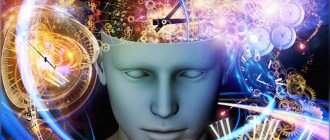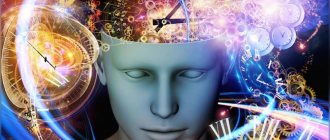In order to define the concept of “moral feelings”, we must first find out what feelings are in general. Often feelings go along with such concepts as perception, sensation, thinking. These categories are responsible for displaying events perceived by a person and indicate the person’s direct attitude to everything that happens in the world around him. Moral feelings and moral standards are closely interrelated.
Where do moral feelings come from?
First of all, under the influence of society and the surrounding reality. Any environment in which a person operates has its own limits of permitted behavior. What is normal for some may be completely unacceptable for others. It depends on the nationality, religion and even the country in which the person lives. Society sets standards of behavior, and a person lives in accordance with these accepted standards. It seems that everything is simple, society establishes that we follow, but what will happen if a particular individual refuses to live in accordance with the proposed moral standards?
School and primary school age
The best understanding of the specific feelings characteristic of a given period is possible only by studying the changes that take place throughout this entire age. Analysis of dominant feelings allows us to see those trends that are characteristic of the most significant aspects and those that cause the greatest emotional reactions in terms of intensity.
Infancy. The emotional life of a baby is primarily focused on what is associated with the satisfaction/dissatisfaction of his vital needs, which is expressed in the feelings he experiences about this. A baby is characterized by an impulsive reaction to the dissatisfaction of a particular need, communication, etc. This impulsiveness changes over the years under the influence of others. In infancy, a stable emotional attitude towards the phenomena of the surrounding world is formed.
Feelings of a preschooler. As the child develops, he begins to perceive the surrounding reality in a new way, and his emotional reactions also change. The child becomes more independent. It is noted that the leading role in the formation of the emotional sphere of the individual, as well as the entire personality in general, is played by the system of public censure or approval of certain actions. A large place in the emotional sphere of a preschooler is occupied by experiences that are situational in nature. They are caused by specific, often random impressions. Games, first subject-based, and then also role-playing, also take part in the formation of the emotional sphere.
Emotional life of a junior schoolchild. This age covers the period from 7–8 to 11–12 years and is characterized by intensive biological and mental development. All these changes directly affect the emotional sphere. New social connections arise, new responsibilities appear, behavior becomes more complex, in particular, the ability to control one’s feelings becomes better from year to year. Throughout primary school age, the child’s emotional behavior becomes more organized. The liveliness and spontaneity of a junior schoolchild’s expression of feelings speaks not only about his emotional sphere, but also about what should be developed and what should be eradicated.
During this period, the child’s moral feelings are intensively formed. This happens under the influence of specific influences, an example seen, one’s own actions - in general, everything that affects him emotionally. Feelings as motives for the behavior of a junior schoolchild occupy a large place in his life and at the same time take a different form than that of a preschooler.
Among other things, aesthetic experiences also develop in younger schoolchildren. From about 8 to 10 years old they become deep and persistent.
What happens if you reject moral standards?
First of all, failure to comply with the norms and rules of behavior prescribed by morality causes negative emotions not only on the part of society, but also in a person in relation to himself. This manifests itself in remorse, feelings of guilt, shame and even jealousy and pity. If society did not exist, then individuals would have no idea what the rules of decency are, they would not distinguish between beauty and ugliness, the rightness and wrongness of actions, and so on. But the question remains open: “What are moral standards, how and by whom are they established?”
About increasing complexity
It's nice to feel good and moral. Don't steal, don't lie, eat healthy food... (oh, no, that's different), don't kill - these are obvious truths!
Today, however, life constantly forces us to make increasingly difficult choices: neither the biblical sages, nor Aristotle, nor Kant had to think about genetic experiments, feminist scandals or the ethically questionable production of Chinese sneakers.
The world is becoming too fast and complex, and it is no longer possible to use the Ten Commandments, unambiguous virtues or an imperative formulated once and for all as a universal tool and guide to action. Representatives of different eras, nationalities and even social groups evaluate many phenomena far from the same. It is enough to remember how attitudes towards euthanasia, abortion, contraception, religious intolerance, gender scripts or hierarchy change, and the seemingly indestructible monolith of moral principles shatters into small fragments.
Research shows that our moral paradigms are not static. Thus, Australian scientists analyzed the frequency and context of the use of “moral” terms in literature from 1900 to 2007. It turned out that some concepts become extremely popular in one era, and in another, humanity seems to forget about them. For example, ideas related to holiness and piety, as well as sin and pollution, almost disappeared from discourse by 1980, only to suddenly re-emerge closer to the 21st century.
Morality and the modern world
Lately there have been heated discussions about what is good and what is bad. A reassessment of values is taking place in society, the world around us is undergoing serious changes, and we are changing with it. It can be noted that what was once considered shameful and immoral is now perceived as normal by society. The most striking example is the sexual revolution. If previously the bride's groom was the first and only, and any deviation from this rule caused negative emotions in society, now everything is completely different.
Is it moral to harm another person? It is difficult to answer this question specifically; even the Criminal Code takes into account the circumstances of the crime, and we can talk about mitigating features. If the crime was committed in self-defense, can such an act be called immoral? Everyone gives the answer to themselves, based on their upbringing and personal principles.
That is why morality is a purely individual concept. However, the acceptance of the basics of morality is order in society. If man did not have moral principles, the world would return to primitive society. Morality is proof of the development of society.
Does a primary school teacher have the moral right to earn extra money in the evenings at a strip club?
If you don’t like thinking about it, then you have high demands on teachers on the fifth point (cleanliness). Do native Muscovites have any preferences over visitors? This is about group membership and fairness. Should all residents of the area be required to help victims of domestic violence? A matter of care.
Everyone can evaluate their system of moral attitudes according to the five listed parameters and note whether changes occur over time and what factors influence this.
Science knows that the views of an entire society change from era to era. Thus, psychologists from the University of Melbourne have found that care, compassion and safety are more important to us now than forty years ago, and, for example, the value of respect for authority has noticeably decreased since the beginning of the 20th century.
So, moral imperatives should be considered intermediate results of cultural evolution. How can you develop the necessary qualities in yourself without waiting for the next social paradigm to change?
How do higher feelings arise?
First of all, higher moral feelings arise in the mind of a person when he bases his behavior not on his desires, but on the demands put forward by society. In the process of upbringing, these requirements must become firmly entrenched in a person’s consciousness, so that in the future they become his own requirements for himself. Often these feelings appear in a person's mind based on a certain incident or event that happened in life. It may also only be a temporary experience. Often moral feelings arise after generalizing the perception of many phenomena of reality.
With the development of society, man acquired the skill to perceive what is happening around him not only on the basis of morality, but also on the basis of an assessment of these events. Here one of the components of morality appears - aesthetic feelings.
Moral feelings are an individual’s stable attitude towards society and himself. What are these feelings?
How are feelings different from emotions?
Feelings in psychology are one of the important factors in a person’s perception of reality. Together with emotions, they help form your own understanding of events around you.
However, all attempts to determine how feelings differ from emotions have a different relationship: sometimes emotions and feelings are identified, but more often emotions are part of a person’s sensory experience.
The main differences between feelings and emotions are:
- origin;
- duration;
- purposefulness.
From a biological point of view, emotions are situational experiences of immediate reality; they are a brief reaction to any human perception.
Feelings in psychology, on the other hand, are more complex and long-lasting internal experiences of a person, which involve not only biological reactions, but also personal experience, social norms and spiritual needs.
Psychologists also believe that everyone reacts to a situation emotionally in the same way, using the same biological mechanisms, while sensory experience is more subjective and individual. Therefore, the emotion of joy manifests itself in everyone in approximately the same way, but everyone has their own state of happiness.
Another important property that distinguishes feelings from emotions is the importance of the context and social environment of a society. For example, a sense of duty or a sense of dignity have different meanings in different historical periods, while fear has always manifested itself in the same way.
Aesthetic feelings
This category is responsible for the feeling of beauty, for the love of beauty, which arises in connection with phenomena and events that cause aesthetic pleasure and delight. These feelings are responsible for a person’s attitude towards objects and phenomena. For example, a person wants to learn to draw because this activity generates aesthetic feelings.
Every human activity is based on the attraction to beauty. Therefore, aesthetic feelings are realized in virtually any field of activity.
How many senses does a person have?
Despite the fact that feelings are one of the ways a person understands the world, the question of their full understanding and categorization is still open.
Feelings underlie most human needs and actions and develop in complex interdependence with a person's cultural and social environment. The first attempts to describe the importance and purposefulness of feelings belong to Aristotle.
He substantiated the presence of 5 human senses that contribute to human cognition:
- vision;
- hearing;
- sense of smell;
- touch;
- taste.
Later philosophers also included the sense of intuition, or the incomprehensible, and this set of human feelings was considered complete for centuries. But modern neurologists far from agree with this classification. Feelings began to be examined in more detail and individual aspects of their manifestations were highlighted.
For example, the sense of taste, as a perception, includes the feeling of sweet, salty, sour or bitter. Based on different scientific approaches and classifications, there are from 3 to 21 feelings characteristic of humans.
Modern science identifies 3 minimal categories of feelings, such as:
- chemical senses (smell and taste);
- mechanical (hearing and touch);
- light (vision).
A more expanded list of human feelings includes other sensations and perceptions:
- joint-muscular feeling;
- vibration sensitivity;
- vestibular apparatus (sense of balance or equibrioception and sense of acceleration);
- pain sensitivity or nociception;
- temperature sensitivity or thermoception;
- proprioception or the sense of body awareness (if we exclude a person’s perception of the world around him with 5 senses, he is still aware of where and how his hand lies);
- sense of time;
- visceral (intuitive) feeling.
The main approach that is characteristic of this classification is that all these feelings can be consciously recognized by a person. Psychologists offer a slightly different approach to understanding feelings. Feelings in psychology are a set of experiences characteristic of every person.
It is believed that two forms of feelings are primary - satisfaction and suffering, and the number of their derivatives increases and becomes more complex with age.
Therefore, based on the interdependence of life experience, mood, emotions and thinking, psychologists describe 5 basic feelings and their varieties that every person experiences.
Namely:
- anger (rage, hatred, irritation, resentment, jealousy, discontent);
- fear (horror, fright, numbness, guilt, shame, confusion, remorse);
- sadness (bitterness, melancholy, laziness, stinging helplessness, loneliness);
- joy (happiness, delight, peace, hope, curiosity, faith, confidence);
- love (tenderness, sympathy, kindness, admiration, sincerity, naturalness).
Thus, human feelings are the basis of psychological literacy, which ensures the sustainable formation of larval development and cognition.
Feeling comic
This category is recognized as one of the most difficult, as it combines three main aspects - morality, aesthetics, and intellectuality. The feeling of the funny can be expressed in completely different forms. For example, a friendly attitude and sympathy turns into a sense of humor. The opposite of humor is satire, a feeling that is thoroughly saturated with anger. We have all heard more than once that the best medicine is laughter; it is the one that fights the negative emotions that arise in the human mind.
A sense of humor can simultaneously be aesthetic, intellectual, and moral. Therefore, psychologically, these feelings are not so easy to distinguish.
These feelings are called higher only because they unite all the diversity of a person’s emotional relationships with society and himself.
Moral feeling and features of its formation
- Moral feeling and features of its formation.
Moral are those highest feelings that are experienced by a person in connection with the awareness of the compliance or non-compliance of his behavior with the requirements of public morality.
Man is a social being; all his activities are connected with the society in which he lives. The connections he enters into with other members of society give rise to a number of deep moral feelings in him, in each of which he experiences one or another attitude towards the requirements of society, established norms of behavior or moral principles and rules.
A person whose actions run counter to the interests of society and are committed by him regardless of the requirements of public morality is guided in his behavior by deeply negative feelings of individualism, selfishness, enmity, envy, schadenfreude, ill will, etc., unworthy from a social point of view.
In cases where a person is aware of the unworthiness of his behavior, the inconsistency of his actions with the requirements of public morality, when he is acutely aware of the condemnation of his behavior by society, the collective, and other people whose opinion about himself he values, he develops such moral feelings as regret about the committed act, feelings of shame, remorse, etc.
Moral feelings are historically developed feelings. In a class society they have a class nature, since they arise from the principles of class morality. They are acquired by people in the process of social life and education. Ultimately, they are determined by the socio-economic system of society and the prevailing production relations between people in it. Thus, capitalist society, based on the principle of private ownership of the means of production and unrestrained exploitation of man by man, is the source of such feelings that destroy a person’s personality and the basis of his normal relationships with other people as individualism (a feeling that encourages a person to be guided in his behavior exclusively by personal interests and benefits) and selfishness (i.e. individualism, increased to such a degree when, in achieving personal benefits, a person does not stop at any actions that are dishonest in relation to other people).
Moral feelings encourage people to take actions and actions in which they protect the interests of the team and society. These are the deepest and strongest feelings a person is capable of.
Moral feelings are associated with a person’s worldview, with ideas, thoughts, ideas, principles and traditions that are firmly rooted in his consciousness in connection with the path he has passed in life. Ideas or thoughts that arise in a person’s mind, being associated with moral feelings, become strong incentives for a person to act.
Moral feelings. These are feelings in which a person’s stable attitude to social events, to other people and to himself turns out to be. They are inextricably linked with the norms of behavior acceptable in a particular society, with an assessment of the compliance of a person’s actions, deeds, and intentions with these norms. The source of such feelings is the life together of people, their relationships, their joint struggle to achieve a social goal.
The high moral feelings of people are, first of all, a feeling of love for their country, a feeling of patriotism. The feeling of patriotism is multifaceted. It is inextricably linked with a sense of national dignity and pride, national identity. National identity is a person’s awareness of his belonging to a particular nation.
It includes and is formed on the basis of:
- Knowledge of the native language, history of one’s country and national culture;
- Awareness of the place of your country, its culture, history among other nations;
- Mentality.
Mentality covers the characteristics of the national worldview, worldview, psychology, and national character.
The positive features of the mentality are: sensitivity, lyricism, which is manifested both in folk art and in rituals; peacefulness, meekness, gentleness of character, goodwill, love of the earth, of beauty.
- Feeling of love for the Motherland
Associated with love for people, with a sense of humanity. The sense of humanity is determined by moral norms and values, a system of individual attitudes towards social objects (person, group, living beings), represented in the mind by experiences, with experiences and are realized in communication, activity, assistance. A person is guided by feelings of humanism when recognizing the rights, freedom, honor and dignity of another person.
- A sense of honor.
These are high moral feelings that are characterized by a person’s attitude towards himself and the attitude of other people towards him. Honor is the recognition by society of an individual's achievements.
The concept of honor embraces a person’s desire to maintain his reputation, prestige, and goodwill in the social environment to which he belongs. Associated with honor is the idea of dignity.
- Feeling of dignity
It manifests itself in public recognition of a person’s rights to respect from others, to independence, in his awareness of this independence, the moral value of his actions and qualities, and rejection of everything that humiliates him as an individual.
A person’s assessment of his own actions, good and bad, his activities, his attitude towards others is called his conscience. This assessment is not only mental, but also emotional. It is experienced and recognized by a person and is considered an internal regulator of his behavior, a manifestation of moral consciousness. The strength and effectiveness of the influence of conscience on a person depends on the strength of a person’s moral convictions.
- Intellectual feelings.
These feelings appear in the process of experiences that are associated with a person’s mental, cognitive activity. These are the feelings of love for knowledge, feelings of new things, surprise, doubt, confidence, uncertainty. These feelings are associated with a person’s moral feelings, but at the same time they are specific, their sources are training, constructive, creative production activities.
- Praxic feelings
These are a person’s experiences of his attitude to activity. A person responds to different types of activity—work, study, sports. This is manifested in passion, satisfaction with the activity, creative approach, joy from success or displeasure, in an indifferent attitude towards it. Praxic feelings arise in activity. A clear idea of the content and form of activity, its process and result, social value are the main prerequisites for the emergence and development of practical feelings.
Praxic feelings develop or fade depending on the organization and conditions of activity. They develop especially successfully and become persistent when the activity appeals to the interests, inclinations and abilities of a person, when elements of creativity are manifested in the activity, and prospects for its development develop.
Praxic feelings become richer when combined with moral ones. Work as a matter of honor, a humanistic attitude to activity makes practical sense an important factor in the struggle for high productivity and quality of work.
1.6 Aesthetic feelings.
Aesthetic feelings include the feeling of beauty, beauty, which are generated by natural phenomena, the results of human labor, artistic and creative activity. Aesthetic feelings reflect beauty in the most objective reality. They manifest the individual’s attitude towards objects and phenomena, caused by an active desire to master specific aesthetic objects or one or another type of creative activity.
Aesthetic feelings are formed and realized in any human activity, since each activity includes elements of beauty. Aesthetic feelings are an important factor in the formation of a person’s moral character.
One of the complex feelings that combines aesthetic, moral, and intellectual aspects is the sense of the funny, the comic. The feeling of the comic arises as a person’s experience of the discrepancy between form and content in people’s actions and actions. The person's disclosure of this incongruity and experience, his attitude towards it - these are the main points that characterize the sense of the comic.
The sense of the comic can manifest itself in various forms. Thus, combined with a feeling of sympathy, a friendly attitude, sympathy for those with whom we laugh, it turns into a sense of humor. Imbued with hatred of other people and anger, this feeling becomes satirical. Laughter is a powerful way to combat the negative things that happen in people's lives.
Moral, intellectual, aesthetic feelings are experienced by a person in activity and communication and are called higher feelings due to the fact that they unite all the richness of a person’s emotional relationships in the social environment.
In defining feelings as “higher,” their generality and stability is noted. At the same time, it is necessary to emphasize the conventions of the concept of “high feelings”, since they include not only positive, moral, but also negative feelings (stinginess, selfishness, envy, etc.). In the absence of an exact classification criterion, moral, intellectual and aesthetic feelings are quite difficult to distinguish psychologically. A sense of humor, being aesthetic, can simultaneously be an intellectual sense (if it is associated with the ability to notice contradictions in the environment) and a moral sense.
- The formation of moral feelings in the history of society
The Marxist principle of historicism, applied to the analysis of human feelings, shows that human sensuality does not always remain unchanged, equal to itself. The nature of sensuality, determined by social and cultural conditions, is in constant, continuous development and complication. Since moral feelings accompany all diverse social relations, along with the development of the latter, a change in the former occurs. F. Engels, criticizing the metaphysical nature of Dühring's approach to the analysis of morality, wrote “that people, consciously or unconsciously, draw their moral views in the final analysis from the practical relations on which their class position is based, i.e. from the economic relations in which production and exchange take place.” This implies the fact that morality and moral feelings cannot be represented as eternal, final, unchangeable, and their scientific analysis involves elucidating the causal-genetic, social conditionality of changes in moral ideas and moral feelings, which are ultimately the product of a given economic order of society.
Considering the problem of the determination of moral feelings by the production relations prevailing in society, it should be noted that this is not a simple, rigid, mechanical determination. Marx’s idea, set out in “Theories of Surplus Value,” about the specificity of spiritual production and its irreducibility to the material, was also applied to the analysis of the nature of moral feelings. Moral feelings are not a direct projection of the relations of material production; they also have their own logic of development.
The nature of moral feelings cannot be revealed without a holistic consideration of morality as a social phenomenon. This is confirmed by the above critical analysis of the “theory of moral sense.” The main drawback of this concept is the attempt to derive all the specifics of morality from only one of its elements - moral feelings. This leads representatives of this ethical school to misinterpret both the specifics of morality in general and to distort the nature and specifics of moral feelings. Only a holistic vision of morality as a social phenomenon creates the foundation and provides the starting premises for analyzing the specifics of its individual elements, in this case, moral feelings. Therefore, a historical analysis of the development of moral feelings involves studying the problem in several aspects: changes in moral feelings in connection with changes in social relations; qualitative, quantitative change in moral feelings in connection with the development of rational elements of moral consciousness.
That is why, before directly analyzing the historical development of moral feelings, it is necessary to give a general definition of morality from the perspective of Marxist-Leninist ethics. Morality is “one of the main ways of normative regulation of human actions in society; a special form of social consciousness and type of social relations (moral relations).”
Moral feelings are an element of the moral consciousness of the individual. These feelings, in their specifically human form and content, are the result of social development, if we mean society as a whole, and the process of socialization, if we are talking about the feelings of an individual. The specificity of moral feelings does not lie in any features of their physiological basis. Scientists studying nervous activity agree that the physiological basis for all feelings is the same - these are the processes of excitation, inhibition and propagation of nerve impulses, etc., occurring in the nervous and humoral systems. The mentioned processes determine the strength, intensity, duration of feelings, but by no means their social content. “It is hardly possible to recognize as scientific concepts that explain, for example, human qualities such as honesty, courage, decency, by the presence of “positive” genes and actually deny that these qualities are formed by the social environment.”
The relevance of moral education of children
The media is full of shocking reports: there, teenagers beat up a friend or teacher, they robbed a store, committed savage massacres of animals, set fire to a neighbor’s house out of revenge, staged a car accident for the sake of spectacular footage on the Internet... These wild acts are not always committed under the influence of alcohol or drugs .
Why is this happening? Neither parents nor schools teach to steal, maim, kill, or have fun at the expense of someone else's grief. Have moral ideals and guidelines changed? Has the educational influence of family and school weakened? Are there any amazing examples of moral selflessness?..
This is probably a topic for large-scale sociological research. It is obvious that today the problem of raising a highly moral person is extremely relevant; moral feelings are the product of an entire system of family and public education.
Moral self-education
A person’s upbringing occurs through external, third-party influence on his personality (family, school, work collective). The pinnacle of the formation of a person’s moral feelings is the emergence in her of an internal awareness of the need to engage in self-improvement, that is, self-education.
The goal of self-education is to develop the best habits, aspirations, qualities and get rid of negative ones. To do this, you need to develop the habit of introspection, independent assessment of not only your own actions, but also their internal motives. It is important that self-analysis is based on standard ideas about morality and law.
A correct ethical assessment of one’s actions and their motives pushes a person to admit his erroneous actions, to search for ways to correct them and restore his authority in the opinions of others.
There are many reasons to think about the qualities of one’s own personality, since moral feelings are a vast field for philosophical reflection and sometimes require immediate resolution. In fact, what he will put at the forefront is his own interest or the interest of another person, society - this is one of the indicators of a person’s level of upbringing.
Adolescence
Adolescence (11 – 12 – 15 years) is often called transitional. Dramatic changes occur in the physiological and mental spheres. The changes that occur in the general development of a teenager help him solve problems that a younger student could not solve. And at the same time, these changes lead to isolation of the teenager.
Adults and teenagers. The emotional well-being of a teenager changes. This applies to his general emotional tone and to changes in moods and states of mind. Based on the emergence of new social relationships, new types of experiences appear and are consolidated, a new emotional attitude is born to what was previously indifferent to the child.
First of all, the teenager develops a range of acute experiences in connection with his relationships with adults and ideas about how adults treat him. A serious place in the emotional life of a teenager is also occupied by his desire to communicate with peers and all the experiences associated with this. For an older teenager, experiences associated with falling in love may occupy a significant place in their emotional life. It is impossible not to note his feelings and aspirations of a social nature.
A teenager, in his claims to what can be entrusted to him and allowed, often “runs ahead” in comparison with his actual development. And this circumstance sometimes gives rise to desires and impulses aimed at changing the relationships that have developed with adults.
The thirst for independence characteristic of adolescents and the impossibility of fully satisfying it on the part of adults give rise to hostile feelings in adolescents towards adults, such as dissatisfaction, irritation, coldness... Misunderstanding of the inner life of adolescents on the part of adults gives rise to the so-called “conflict between fathers and children.” This is probably due to imperfect memory - adults tend to forget that they themselves were once teenagers. Hence the inability and unwillingness to put oneself in the place of another.
Sense of collectivism, friendship of teenagers. The desire to have friends and the need for communication, which arises as if in contrast to isolation, is determined in a teenager mainly by the feeling that a lot of new things are being revealed to him in life. I want to be understood, to trust someone.
Along with the desire to communicate with peers, one should not forget about the feeling of sympathy and attention to peers of the opposite sex. In conditions of joint learning in a teenage group, boys and girls develop a much greater interest in each other than, for example, 4th grade schoolchildren. This is a period of great sympathy for each other, and sometimes falling in love.
Growing self-awareness, social and antisocial feelings of adolescents. The growth of self-awareness of adolescents leads not only to the fact that he begins to more clearly understand himself as an individual, different from others, but also to the fact that he begins to think about himself, about his properties, character traits, and evaluate their good and bad sides. A teenager develops a certain attitude towards his feelings. The development of a teenager in this regard is expressed not only in increased attention to his inner world, but also in the desire to gain more knowledge and more impressions from the environment. A teenager's emotions and feelings are often contradictory and changeable. The growth of self-awareness in adolescents can lead to attacks of increased reflection, which in turn leads to depression. This is a very conflicting age, called “difficult”; based on the above, it justifies its name.










